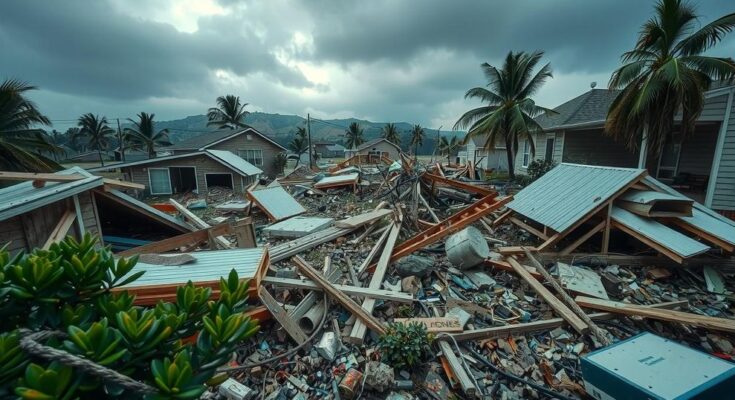The 2024 Atlantic hurricane season concluded with 11 hurricanes, including historically damaging storms like Hurricane Helene and Hurricane Milton. With fatalities exceeding 200 and damages estimated at nearly $48.8 billion, the season highlighted the effects of warming oceans and climate change on hurricane activity, prompting discussions on preparedness and infrastructure resilience.
The 2024 Atlantic hurricane season has officially concluded, concluding a notable season characterized by 11 hurricanes, surpassing the average of seven. The season has inflicted widespread devastation along the U.S. Gulf Coast and beyond, showcasing the impacts of increasingly warm ocean temperatures on storm activity. Notable hurricanes included Hurricane Beryl, which became the first Category 4 hurricane recorded in June, causing significant destruction in Grenada and Jamaica, followed by the unprecedented emergence of Category 5 storms.
Hurricane Helene was especially catastrophic, marking the deadliest storm to hit the U.S. mainland since Hurricane Katrina in 2005, resulting in over 200 fatalities and approximately $48.8 billion in damages across North Carolina and other states. Furthermore, Hurricane Milton achieved wind speeds up to 180 mph, making it one of the most intense hurricanes recorded in the Gulf of Mexico. These storms inflicted historically high rainfall levels across affected regions, cementing 2024 as a record year.
As we analyze these occurrences, meteorologists underline the escalating impact of climate change on storm formation and intensity. The warmer ocean temperatures facilitate the development of severe weather events earlier or later than traditionally expected. Experts emphasize that while it is challenging to attribute individual storms to climate change, the evidence asserts that such conditions increasingly foster extreme hurricane activity.
The Atlantic hurricane season typically runs from June to November, with the peak of activity usually occurring in September. However, the 2024 season has been marked by abnormal weather patterns, attributed largely to warming ocean temperatures influenced by climate change. Meteorologists have observed that these rising temperatures allow for larger and more intense storms, challenging prior expectations of hurricane behavior and timing. As a result, this season’s hurricanes have tested preparedness plans and local infrastructures across the southeastern U.S. and nearby islands.
In summary, the 2024 Atlantic hurricane season has been tumultuous, with numerous hurricanes producing unprecedented damage and loss of life. The occurrence of early and late storms has underscored the influence of climate change on hurricane development. Moving forward, continued research into these dynamics is essential for improving forecasting accuracy and storm preparedness efforts.
Original Source: www.wtvr.com




